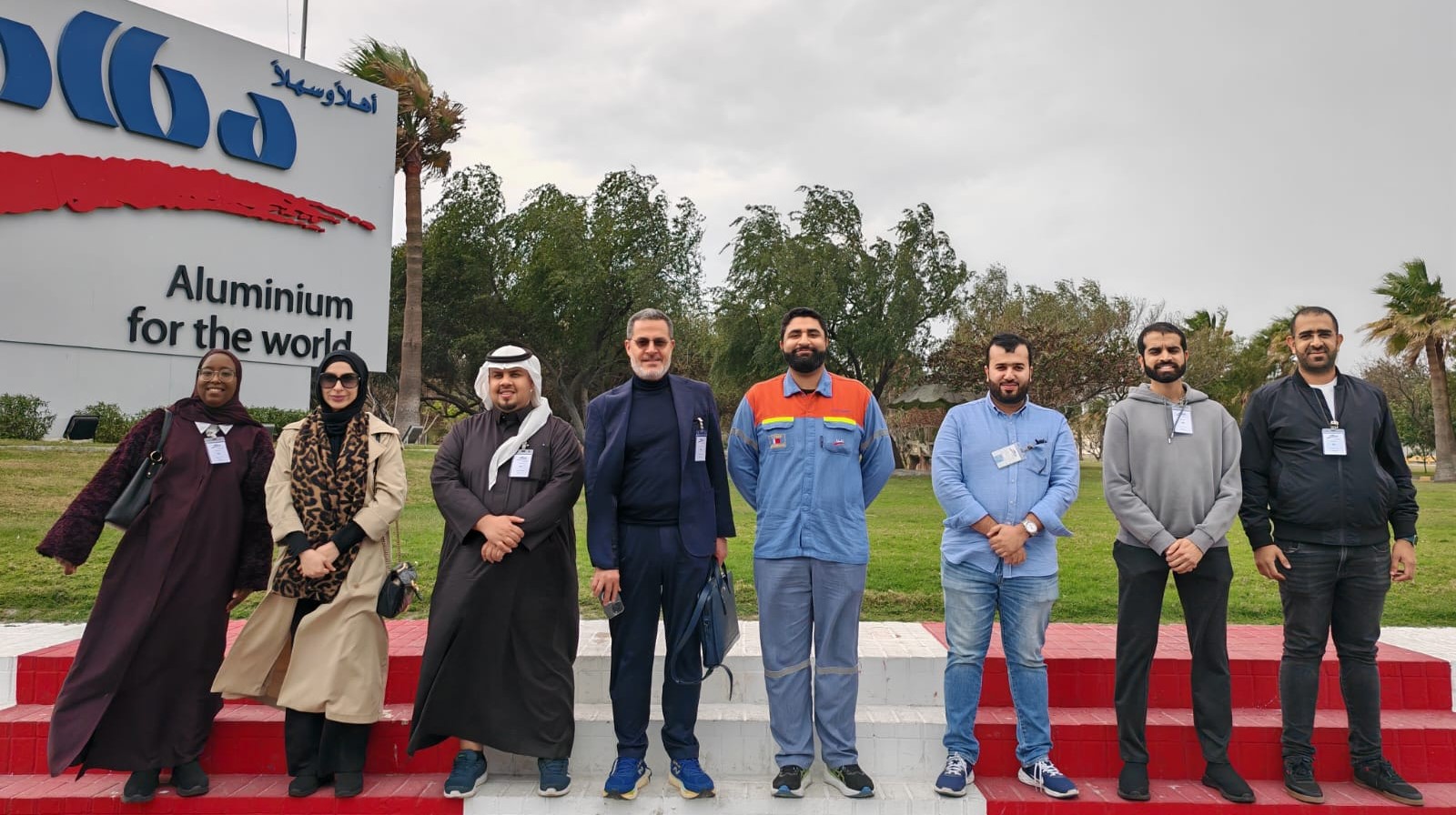
Students from the Professional Diploma in Waste Management Programme Explore Sustainable Practices at Alba
Arabian Gulf University
09 Mar, 2025
The Professional Diploma in Waste Management Programme at the College of Education, Administrative and Technical Sciences at the Arabian Gulf University (AGU) recently organised a field visit to Aluminium Bahrain (Alba). This visit aimed to enhance practical application of theoretical concepts learned in the programme and to familiarise students with leading sustainable environmental practices and strategies for managing industrial and hazardous waste at one of the world's largest aluminium smelters. The visit also provided an opportunity to explore potential collaborations in sustainable technology development and investment at the Gulf level.
During the visit, students from the programme's fourth batch learned about Alba's key sustainable practices as part of its environmental policy, which contribute to improving health, the economy, and society. Representatives from Alba's training and ESG departments welcomed the student delegation, which was also accompanied by the CEO of the German company GI Aqua Tech, specialising in waste management and water and sanitation technologies.
The Alba team presented an overview of the company's safety procedures through an awareness video, as well as a presentation on Alba’s impact on the national economy. The students were briefed on Alba's environmental, social, and governance initiatives. The visit included a tour of the Princess Sabeeka bint Ibrahim Oasis, a vital indicator of environmental quality. Students then toured the smelter facilities, where they learned about the manufacturing and waste treatment processes, methods for converting waste into reusable raw materials, and sustainable disposal practices.
Dr Sumaya Yusuf, Assistant Professor of Environmental Engineering and Coordinator of the Professional Diploma in Waste Management Programme, emphasised the importance of the visit in enriching students' knowledge about sustainable waste management. It also fosters investment and collaboration across various sectors in the region, enhancing the sustainability of Gulf societies.
Dr Sumaiya noted that waste management poses significant environmental challenges in urban areas, necessitating a shift toward sustainable approaches that prioritise waste reduction, reuse, recycling, and minimising landfill use, which is the least sustainable option in the integrated waste management hierarchy. She explained that the visit aimed to promote the circular economy concept, which views waste as a resource to be utilised rather than discarded, thereby protecting the environment and fostering economic, social, and environmental sustainability.
The Professional Diploma in Waste Management Programme, now in its fourth cohort, is the first of its kind in the Arabian Gulf and is accredited by the Chartered Institution of Wastes Management (CIWM) (CIWM). The programme offers a flexible educational model that combines online and in-person attendance, attracting participants from various GCC countries and sectors such as municipalities, industry, trade, and health.
Since its inception, the programme has graduated 56 specialists who have played a key role in promoting sustainable practices in the Gulf. Supported by the United Nations Environment Programme - West Asia Office, the programme aims to build capacity and raise awareness about sustainable waste management while fostering an innovative investment environment that contributes to achieving sustainable development in the region.
